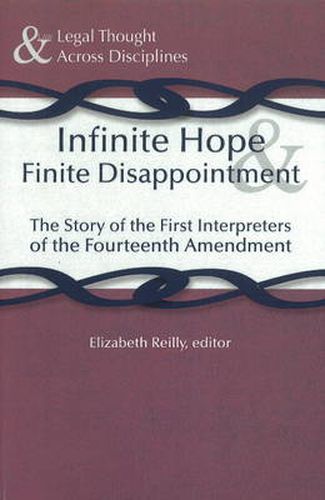Readings Newsletter
Become a Readings Member to make your shopping experience even easier.
Sign in or sign up for free!
You’re not far away from qualifying for FREE standard shipping within Australia
You’ve qualified for FREE standard shipping within Australia
The cart is loading…






This book details the hopes and promises of the 14th Amendment in the historical, legal, and sociological context within which it was framed. Part of the Reconstruction Amendments collectively known as The Second Founding , the 14th Amendment fundamentally altered the 1787 Constitution to protect individual rights and altered the balance of power between the national government and the states. The book also shows how initial Supreme Court interpretations of the amendment’s reach hindered its applicability. Finally, the contributors investigate the current impact of the 14th Amendment. The book is divided into three parts: ‘Infinite Hope: The Framers as First Interpreters’, ‘Finite Disappointment: The Supreme Court as First Interpreter’, and ‘Never Losing Infinite Hope: The People as First Interpreters’.
$9.00 standard shipping within Australia
FREE standard shipping within Australia for orders over $100.00
Express & International shipping calculated at checkout
This book details the hopes and promises of the 14th Amendment in the historical, legal, and sociological context within which it was framed. Part of the Reconstruction Amendments collectively known as The Second Founding , the 14th Amendment fundamentally altered the 1787 Constitution to protect individual rights and altered the balance of power between the national government and the states. The book also shows how initial Supreme Court interpretations of the amendment’s reach hindered its applicability. Finally, the contributors investigate the current impact of the 14th Amendment. The book is divided into three parts: ‘Infinite Hope: The Framers as First Interpreters’, ‘Finite Disappointment: The Supreme Court as First Interpreter’, and ‘Never Losing Infinite Hope: The People as First Interpreters’.